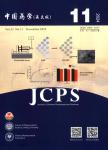Panax notoginseng saponins protect against chronic ethanol-induced hepatic steatosis
三七总皂苷对慢性酒精性脂肪肝的保护作用研究(英文)作者机构:澳门大学中药质量研究国家重点实验室中华医药研究院中国澳门999078
出 版 物:《Journal of Chinese Pharmaceutical Sciences》 (中国药学(英文版))
年 卷 期:2014年第23卷第6期
页 面:361-368页
核心收录:
学科分类:1008[医学-中药学(可授医学、理学学位)] 1006[医学-中西医结合] 100602[医学-中西医结合临床] 10[医学]
基 金:Research Committee of the University of Macao(Grant No.MYRG123-ICMS12 and MYRG111-ICMS13) from Macao Science and Technology Development Fund(Grant No.010/2013/A1)
主 题:Alcoholic fatty liver Panax notoginseng saponins Lipolysis InflammationCLC number: R96 Document code: A Article ID: 1003-1057(2014)6-361-08
摘 要:Chronic alcohol consumption induces hepatic steatosis, the early stage of alcoholic liver disease (ALD). The aim ofpresent study is to investigate the protective effect ofPanax notoginseng saponins (PNS) against chronic ethanol-induced hepaticsteatosis in vivo. Mice were pair-fed a modified Lieber-DeCarli liquid diet containing alcohol or isocaloric maltose dextrin ascontrol diet with or without PNS (200 mg/kg, BW) for 8 weeks. Animals supplemented with PNS were protected against hepaticlipid accumulation induced by chronic ethanol exposure. Accordingly, PNS could significantly decrease the elevation of plasmatriglyceride, plasma enzyme activities, i.e. alanine aminotransferase (ALT) and aspartate aminotransferase (AST), and hepaticTNF-ct and IL-6 levels which were induced by chronic alcohol exposure. In addition, PNS markedly reduced the lipolysis ofwhite adipose tissue (WAT) that stimulated by alcohol feeding through the inhibiting protein expression of phosphorylation ofhormone-sensitive lipase (p-HSL), rather than total HSL. Furthermore, alcohol exposure also enhanced fatty acid uptake capacityin liver by elevated hepatic CD36 expression, which could attenuated by PNS treatment. These results demonstrate that PNSsupplementation protects against chronic ethanol-induced hepatic steatosis, which is associated with ameliorating dysfunctionallipid metabolism of WAT and the reduced inflammatory cytokines. Our findings suggested that PNS might be potential to bedeveloped as an effective agent for the treatment of chronic alcoholic steatosis.



